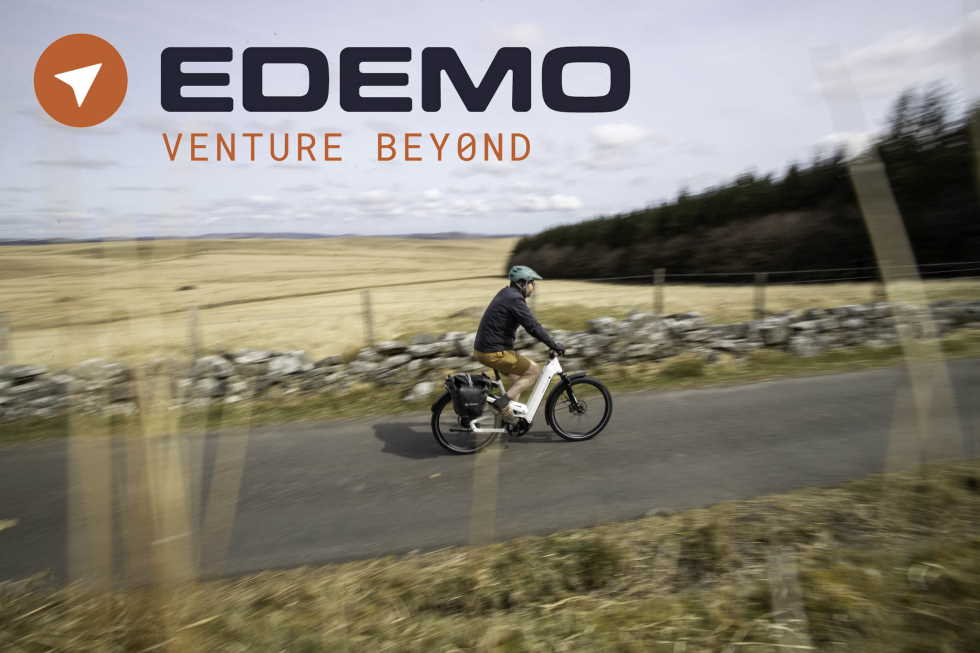Customers that are business owners often ask us if they can purchase their e-bike through their company. The good news is you can and there are a couple of different ways to do it, both of which offer some great tax savings.
This is a guest article by EDEMO electric bikes.
Company purchase
The easiest way to purchase your new e-bike through your business is simply for the business to purchase your bike directly. You simply need a VAT invoice from us in your company’s name. This will allow you to reclaim the VAT and reduce your corporation tax liability too. For example, buying a £6,000 bike, you can reclaim £1,000 of VAT and another £950 of corporation tax using your capital allowances annual investment allowance. There is no upper limit to the value of the bike you buy.
The company can also buy your helmet or other accessories and any protective clothing you need. These items are classed as revenue expenditure and are also deductible for Corporation Tax.
Cycle to work schemes
If you don’t want to purchase the bike directly through your company, an alternative option is the cycle to work scheme. Introduced back in 1999, the cycle to work scheme was designed to encourage companies to lend bikes to employees as a tax-free benefit. However, company directors can benefit from this scheme too, even if the director is the sole employee. The company (employer) can purchase the bike and then loan it to the director (employee) for any qualifying business journeys.
There is no taxable benefit-in-kind incurred by using the bike, so there is no need for any reduction in salary to offset the bike’s cost. Directors can also potentially save on income tax, as the bike is being funded by income earned before tax and national insurance, meaning they could save between 20-45% when compared to purchasing it personally, depending on their salary.
EDEMO work with several different cycle to work schemes, so please contact them if you’re thinking of using one to purchase a bike.
HMRC Rules
To benefit from the cycle to work scheme tax savings, HMRC states that the bike should mainly be used for work, meaning at least 50% of the mileage on the bike is work-related.
However, HMRC’s definition of work-related usage is reasonably broad and (unlike for cars) commuting to and from work is included, meaning that even if you stay in the office once you’ve arrived, you could still qualify.
HMRC does not require the bike user to keep a mileage log, nor do they require employers to monitor employees’ usage. However, if the bike is mainly used for leisure, then Benefit in Kind charges will apply and the company must complete an annual P11D form on the assessable value.
The bike must remain owned by the company and ownership should not be transferred to the employee during the period of the loan. If you buy the bike from the company at some point down the line, then the company must pay Corporation Tax on the value the bike was sold for. It’s also worth noting it must be sold at a commercial rate, meaning you can’t buy a £6,000 bike and sell it to yourself for £10 a few months later!
As the company retains ownership of the bike, it’s important to remember that the cost of any repairs remains the responsibility of the company.
Your accountants will be able to advise whether direct purchase or the cycle to work scheme is best for your particular circumstances.
Mileage allowances
One final thing worth noting that is often overlooked is that it is possible to claim mileage for bikes that are personally owned but still used for journeys to and from a temporary workplace, in a similar way to how mileage can be claimed for using a privately owned car for a business journey. HMRC allows a cyclist to claim 20p per mile for business journeys.
But that’s not the only benefit of using a bike. Cycling an extra five miles to work and back every week on an e-bike will burn around 1,500 – 2,500 extra calories for the average person, and could reduce their carbon footprint by about 45kg CO2. These environmental and health benefits, combined with the generous tax breaks available, make it well worth thinking about swapping your car for a bike to get to work or travelling between meetings!
James Geary Head of Corporate Tax at Randall & Payne comments:
With the combination of increasing emphasis on environmental concerns for employees and the current cost of living crisis, as well as the generous tax breaks involved, there quite possibly has never been a better time to think about bikes as a tax efficient benefit for employees. The combined health and cost saving benefits are undeniable.”
If you’re thinking about buying an e-bike through your company, please get in touch to arrange a test ride on 01453 834300 or info@edemo.bike.




